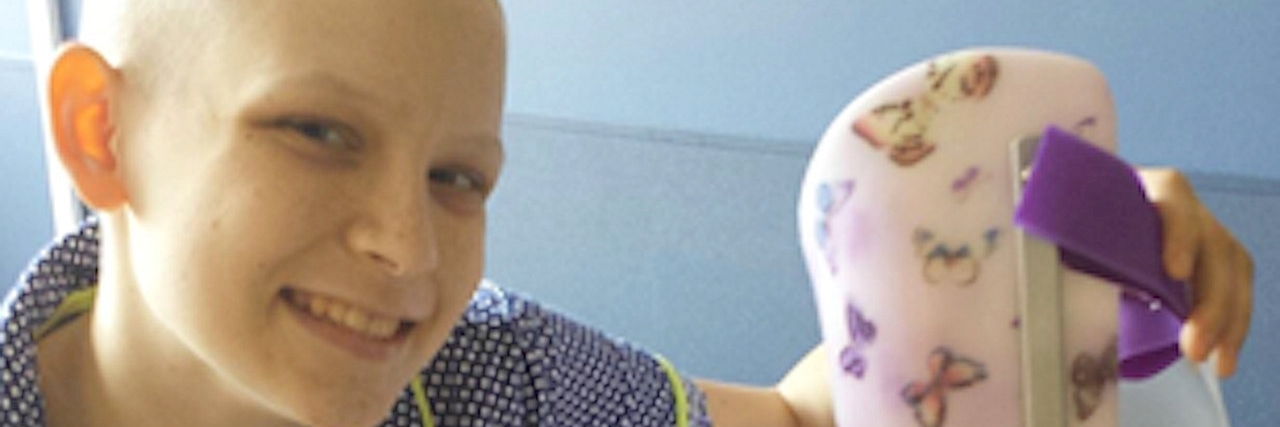I have tried to write this so many times, but I always seem to draw a blank when I’m asked to give advice to teenagers like myself on how to battle cancer. I suppose there is really no advice I could give that hasn’t already been given. But more than that, I just feel as though no advice I can give would ever be as helpful as I would like it to be.
Instead of telling you how bad the taste of rust is in your mouth during a saline flush, I want to go beyond my diagnosis and treatment. Here goes nothing: the good, the bad and the ugly. Yikes.
I was diagnosed with osteosarcoma on March 19, 2014. My treatment consisted of nine months of chemotherapy. I had four surgeries on my leg, including a limb salvage procedure to remove a softball-sized tumor in my right femur. And I spent more than two years on crutches. I lost everything: my hair, my friends and myself. But after more than two years since my diagnosis, I realize it took losing everything before I could truly find where I belong.
My cancer was something that took a long time for me to understand. My brain knew I was sick. My eyes could see I had lost weight. The sores in my mouth and throat told me I was clearly in chemo. And the scars left all over my leg were obvious symbols I had survived something.
Even now, a piece of my heart doesn’t know I had cancer. A small part of me wants to ignore the reality and believe I am a completely normal 15-year-old girl. But truthfully, no childhood cancer patient ever qualifies to be a normal kid. They are far more strong, wise and extraordinary than any other child. We are amazing, talented and incredibly special, but that doesn’t mean everything returns to normal after the battle.
In my experience with chemo and life afterwards, I felt like I couldn’t relate to my peers anymore. I imagine this problem isn’t as big of a deal for very young cancer patients, but as a teenager with cancer it was a big problem for me.
I knew these people, and I thought they knew me, but after chemo I was a different person. I didn’t want to pretend my friends treated me normally anymore. I was constantly isolated and looked at with pity. People treated me like damaged goods or like I was an object to be handled with care and protected at all costs.
Everyone was constantly walking on eggshells when they were around me. They thought I would break and fall into pieces if they mentioned anything about my disease. However, it was this isolation that shaped me into the person I am today.
The summer after I was officially in remission, I went to a camp for cancer patients and survivors. I will admit when I first got there, I couldn’t wait for the week to end fast enough. But by the end of my short time there, I had finally found somewhere I belonged.
Once the school year started, I became even more involved with other survivors and organizations. I have realized these are the people I could call my friends. I no longer belonged to a community where the biggest issues we face are winning football games or getting our crush to talk to us. I had bigger fish to fry!
I belong to a community that works toward a meaningful goal together. One that celebrates my scars rather than hiding from them. Most importantly, I can call this group of people my family. In the past year, I have raised thousands of dollars, shaved my head for cancer and made countless new friends. I made a real change, and I don’t plan on stopping any time soon.
After reading back over this, I realize I finally have a piece of advice I can offer: Find your family. I am your family, we are your family and you should never feel like you are in this alone. There is always hope.
The Mighty is asking the following: What is a part of your or a loved one’s disease, disability or mental illness that no one is aware of? Why is it time to start talking about it? If you’d like to participate, please check out our Submit a Story page for more about our submission guidelines.

